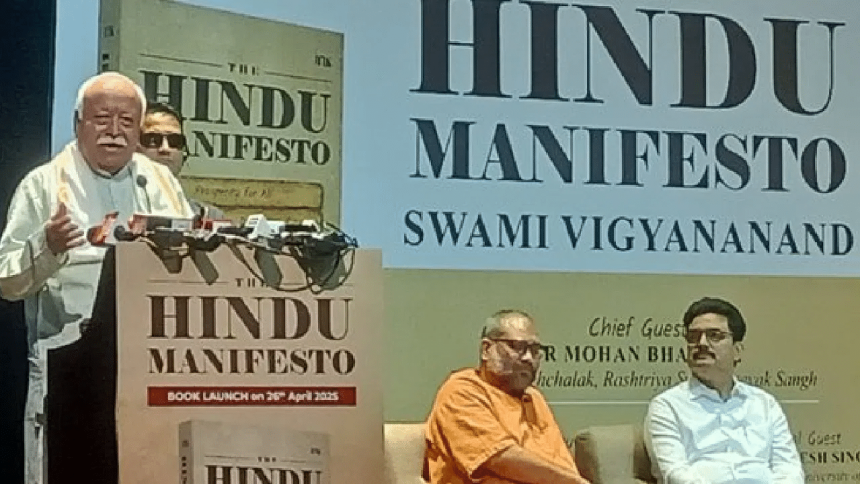
New Delhi: After the terrorist attack in Pahalgam, Jammu and Kashmir that killed 26 people, there is growing anger in India. As India takes strong actions in response to the attack, RSS chief Mohan Bhagwat also spoke out, urging the need to protect the country and punish those who commit atrocities.
Speaking at the launch of the book ‘The Hindu Manifesto’ in Delhi, Bhagwat said, “It is our duty to teach a lesson to those who do wrong. The killing of Ravana by God was not an act of violence but an act for the welfare of the world. Protecting people from harm is the true meaning of non-violence.”
He explained that non-violence is an important part of Indian culture, but it also means standing up against wrongdoing. “We never harm our neighbors,” Bhagwat said, “but if someone repeatedly chooses the wrong path, it is the duty of the king — or the government — to protect its people.”
#WATCH | Delhi: RSS chief Mohan Bhagwat says, “…Non-violence is our nature, our value… But some people will not change, no matter what you do, they will keep troubling the world, so what to do about it? … Non-violence is our religion. Teaching a lesson to hooligans is also… pic.twitter.com/Kr9aRMBCy4
— ANI (@ANI) April 26, 2025
Fight between dharma and adharma, says RSS chief
Bhagwat emphasized that the attack showed the ongoing fight between dharma (righteousness) and adharma (wrongdoing). “People were killed based on their religion. Hindus do not follow such hatred. It is not in our culture. However, it is also not in our culture to stay silent when we are attacked,” he said.
Bhagwat compared the current situation to the story of Ravana from the Ramayana. Even though Ravana was given chances to change, he continued on the wrong path and was finally defeated by Lord Rama.
“Similarly, when someone continues on the wrong path and threatens peace, it becomes necessary to act firmly for the protection of society,” Bhagwat added.
Bhagwat also said that people must understand the true meaning of religion. He explained that religion is not just about rituals, worship places, or food habits, but about living with respect for all paths. “My path is right for me, and your path is right for you. True religion teaches us to respect all,” he said.
He urged the Hindu community to reconnect with the deeper meanings of Hindu philosophy and teachings.
About ‘The Hindu Manifesto’
The event also witnessed the launch of ‘The Hindu Manifesto’, a book written by Swami Vijnanand, an IIT graduate and senior member of the Vishwa Hindu Parishad (VHP) and RSS.
The book is not a regular religious text. It presents a new narrative that challenges many traditional ideas and offers a strong Hindu perspective based on ancient scriptures like the Vedas, Ramayana, Mahabharata, Arthashastra, and Shukranithisara.
‘The Hindu Manifesto’ sets out eight guiding principles for building a strong nation:
- Prosperity for all
- National security
- Quality education
- Accountable democracy
- Respect for women
- Social harmony
- Respect for heritage
- Sanctity of nature
The book is seen as a blueprint for a civilizational rebirth, rooted in ancient wisdom but aimed at modern India and the world.










